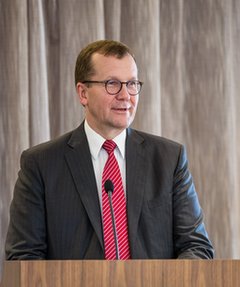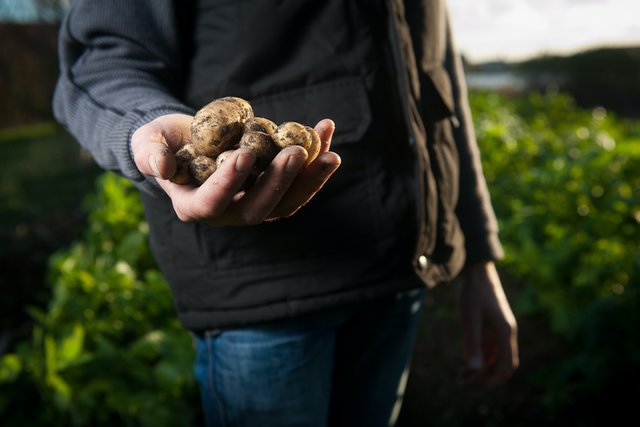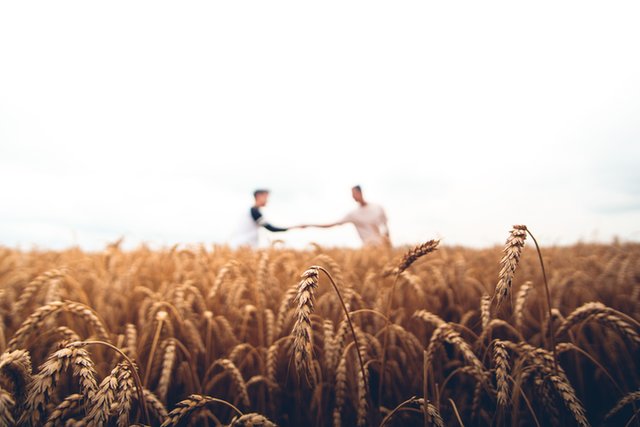covid-19 special
Editorial

Pekka Pesonen
Secretary General at Copa and Cogeca
European farmers and European agri-cooperatives
The current COVID-19 pandemic is causing many challenges for the agri-food sector in Europe. By far, the main challenge is to keep our European agri-food chain operating as normally as possible.
So far, we have not experienced any major shortages of consumer foodstuffs and all operators within the value chain are very committed to keep it like that. Most farmers work almost normally according to the production cycles in each of the sectors. Arable farmers have started with the seasonal work in seeding and planting while livestock producers continue with their production, too. Some sectors, such as fruit & vegetables have faced seasonal labour shortages that may potentially disrupt their production all along the season. The biggest change that we face is the closure of the hospitality sector in many Member States. This has disrupted value chains and caused some unfortunate economic damage and in some cases food losses.
We also see now that food security is back on the table. This may sound surprising in the relatively well-off EU, but look at the consumers stockpiling, even hoarding groceries when they knew that the supply was there. Securing supply of basic foodstuffs is still in our psyche. Also from our farming perspective we must ensure alternatives and diversification. Our dependencies on a single source of crucial inputs must be re-assessed. This may be active substances in pharmaceuticals or plant protection products, machinery spare parts, seed, feed ingredients or even seasonal labour force. In some cases, the whole process may be endangered by a single missing part of the puzzle. In fact, our cooperative food industries faced major bottlenecks with people staying home for the fear of disease. But then again, how much are we willing to pay in the price of our food for this diversification and enhanced security?
We have seen very positive, appreciative statements on socioeconomic groups that just keep going, even at the time of crisis.

Luckily the current pandemic does not only pose challenges, it also creates opportunities. We have seen very positive, appreciative statements on socio-economic groups that just keep going, even at the time of crisis. Naturally, we salute our health workers, nurses and doctors. Our sector has also received praise for keeping shops supplied with food. And like the health care industry, it is millions of agri-food chain people including farmers that make this happen. In normal times, we do not necessarily notice it. But when the crisis hits, we all have to eat. Every day.
Already well before this crisis, we have been working on an EU code of conduct on data sharing. The objective of this initiative was to enhance the incorporation of digital solutions in the agri-food chain and in particular for agriculture and farmers themselves. The important starting point is to have reliable data from the consumer market and reversely, give reliable data back to consumers to support their informed choices on foodstuffs. Building trust is key and this may actually prove to be useful experience from this crisis. In the future, precision farming is a must and it cannot succeed without modern innovative technologies where digital solutions create a solid baseline.

Modern technologies and believing in them is only the first step to build a more sustainable and innovative agri-food chain. In addition to technologies, we must create solutions that citizens and consumers accept. In particular here in Europe, we have made too many mistakes in trying to force markets and consumers to accept particular technologies. It is only by bringing the benefits close to the consumers themselves where can make a difference. Transparency is good, sharing is better but only by engaged partnership will we achieve the best outcome.
Signed,
Pekka Pesonen
Secretary General at Copa and Cogeca
European farmers and European agri-cooperatives
